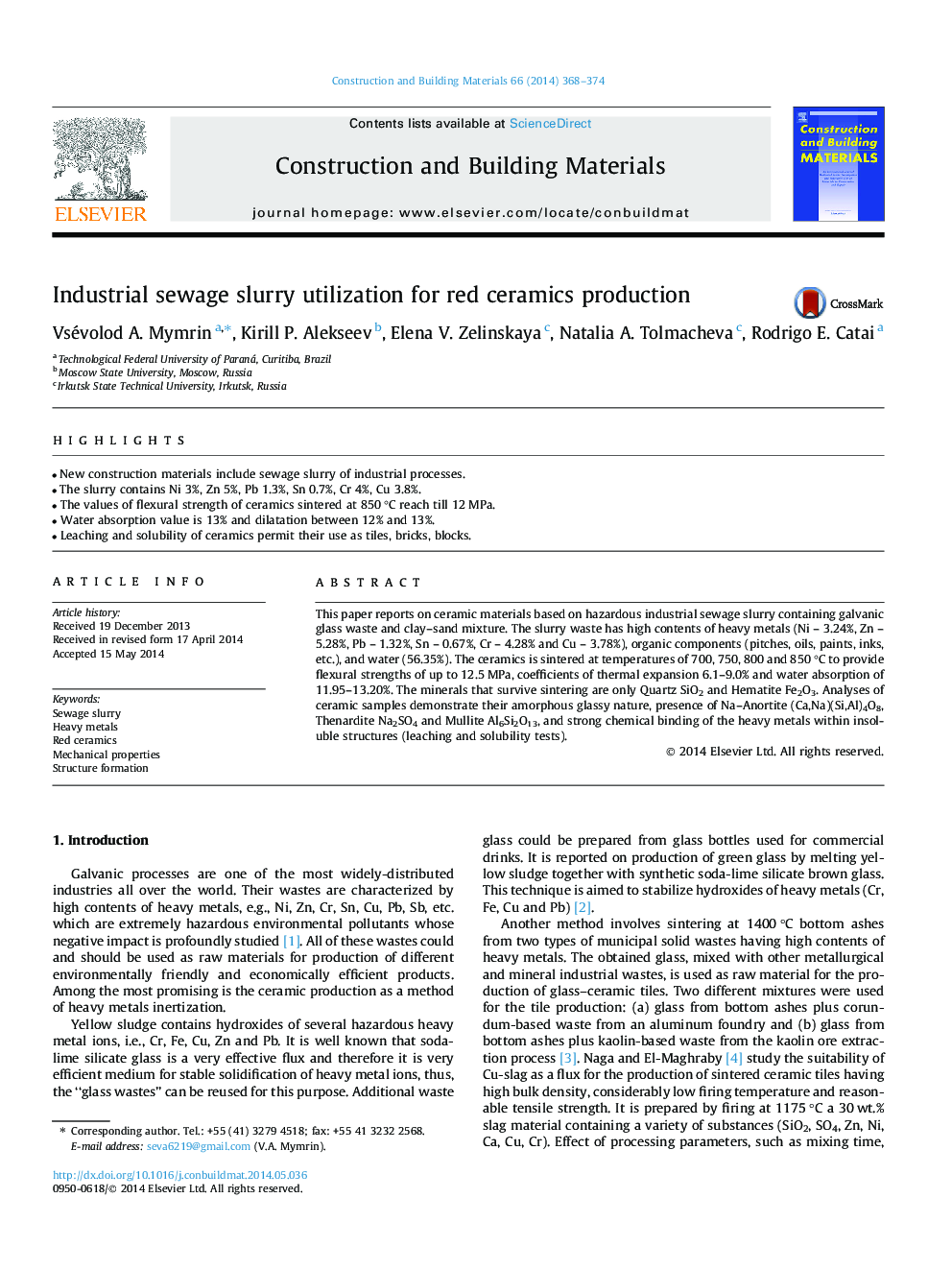| Article ID | Journal | Published Year | Pages | File Type |
|---|---|---|---|---|
| 6722738 | Construction and Building Materials | 2014 | 7 Pages |
Abstract
This paper reports on ceramic materials based on hazardous industrial sewage slurry containing galvanic glass waste and clay-sand mixture. The slurry waste has high contents of heavy metals (Ni - 3.24%, Zn - 5.28%, Pb - 1.32%, Sn - 0.67%, Cr - 4.28% and Cu - 3.78%), organic components (pitches, oils, paints, inks, etc.), and water (56.35%). The ceramics is sintered at temperatures of 700, 750, 800 and 850 °C to provide flexural strengths of up to 12.5 MPa, coefficients of thermal expansion 6.1-9.0% and water absorption of 11.95-13.20%. The minerals that survive sintering are only Quartz SiO2 and Hematite Fe2O3. Analyses of ceramic samples demonstrate their amorphous glassy nature, presence of Na-Anortite (Ca,Na)(Si,Al)4O8, Thenardite Na2SO4 and Mullite Al6Si2O13, and strong chemical binding of the heavy metals within insoluble structures (leaching and solubility tests).
Related Topics
Physical Sciences and Engineering
Engineering
Civil and Structural Engineering
Authors
Vsévolod A. Mymrin, Kirill P. Alekseev, Elena V. Zelinskaya, Natalia A. Tolmacheva, Rodrigo E. Catai,
